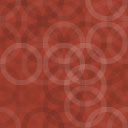Easy Image Display Wordpress Plugin - Rating, Reviews, Demo & Download

Plugin Description
Sometimes you need a proper image gallery to display particular images, and there
are plenty of plugins for that. Easy Image Display is for those other
times, when all you need is an easy way to display some random images, or X latest/oldest
images uploaded to your site.
Current features include:
- Show or hide image captions
- Newest, oldest, random and custom sorting options
- Include/exclude images based on ID
- Widget, shortcode and template tag for maximum flexibility
- Display images at various sizes
- Control how many images are displayed and in how many columns
- Link images to a lightbox, static URL, or remove link entirely
- Uses gallery shortcode so will always fit your theme
Features soon to be added:
- Filter images by attachment status
- Slideshow layout
- Custom image sizes
If you’d like to support the ongoing development of this plugin, please take a look at my Patreon page.
Usage
Easy Image Display provides 3 ways of displaying images; widget, shortcode and template tag. Each method accepts the same options and will result in the same display.
Widget
The Easy Image Display widget is the easiest way to display your images. The basic settings allow you to control image size, order and number. More advanced settings are collapsed by default to provide a simple uncluttered interface.
Choose your options, hit save, and rejoice.
Shortcode
To display images inside a post or page rather than a widget area, you need a shortcode.
Default settings:
[sb_easy_image]
Custom settings:
[sb_easy_image num="1" order="random" link="lightbox"]
Template tag
The template tag is available for users who are confident in adding code to theme files, and need to display images outside of the widget areas or main content area. The following function can be added anywhere in your theme files.
Default settings:
<?php sb_easy_image(); ?>
Custom settings:
<?php
$args = array(
"num" => "1",
"order" => "random",
"link" => "lightbox",
);
sb_easy_image( $args );
?>
For full list of parameters see the plugin release page
Screenshots
No screenshots provided





